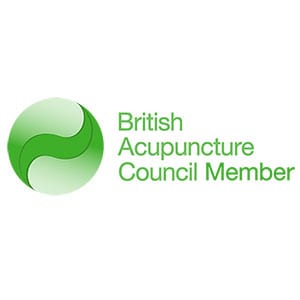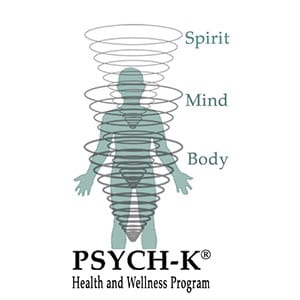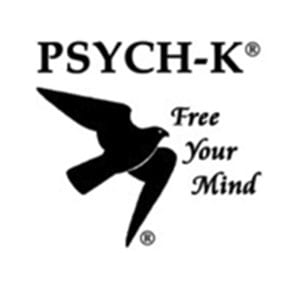Acupuncture For Female Infertility
About Infertility
Infertility is the inability of a couple to get pregnant despite having regular unprotected sex. A couple is regarded as infertile if, after regular sexual intercourse, they have not conceived in two years. It is estimated that one in seven UK couples has difficulty conceiving (HFEA, 2006). Identifiable causes of infertility include: ovulatory disorders in 27% of couples; tubal damage in 14% of couples; low sperm count or low sperm quality in 19% of couples. In 30% of couples the cause of infertility remains unexplained (NCCWCH, 2004). Female fertility declines with age, but the effect of age on male fertility is less clear (NICE, 2004). The difficulties couples encounter when facing fertility problems can lead to stress, which may further decrease chances of conception (Eugster & Vingerhoets, 1999). Acupuncture is a popular treatment choice for infertility (Smith 2010).
References
Eugster A, Vingerhoets AJ. Psychological aspects of in vitro fertilization: a review. Soc Sci Med. 1999 Mar;48(5):575-89.
Human Fertilisation and Embryology Authority (HFEA) Facts and figures for researchers and the media. (2006) www.hfea.gov.uk
National Collaborating Centre for Women’s and Children’s Health Fertility (NCCWCH) Fertility: assessment and treatment for people with fertility problems (full NICE guideline). Royal College of Obstetricians and Gynaecologists. www.rcog.org.uk
National Institute for Health and Clinical Excellence (NICE) Fertility: assessment and treatment for people with fertility problems (NICE guideline). Clinical guideline 11. (2004) www.nice.org.uk
Smith JF, Eisenberg ML, Millstein SG, Nachtigall RD et al. The use of complementary and alternative fertility treatment in couples seeking fertility care: data from a prospective cohort in the United States. Fertil Steril. 2010;93(7):2169-74
How acupuncture can help
Randomised trials in China have demonstrated significantly better pregnancy rates for acupuncture than medication (Yang 2005, Chen 2007, Song 2008), but these studies may not be of a high quality. In the West, clinical trials on acupuncture for natural fertility (i.e. not as an adjunct to assisted conception) are almost non-existent, though there is a small amount of positive evidence (Gerhard 1992, Stener-Victorin 2000, 2008, 2010).
Research has established plausible mechanisms to explain how acupuncture may benefit fertility:
- regulating fertility hormones – stress and other factors can disrupt the function of the hypothalamic pituitary-ovarian axis (HPOA), causing hormonal imbalances that can negatively impact fertility. Acupuncture has been shown to affect hormone levels by promoting the release of beta-endorphin in the brain, which affects the release of gonadotrophin releasing hormone by the hypothalamus, follicle stimulating hormone from the pituitary gland, and oestrogen and progesterone levels from the ovary (Ng 2008, Huang 2008, Lim 2010, StenerVictorin 2010). Further details of these processes are emerging, for example mRNA expression of hormones, growth factors and other neuropeptides (He 2009)
- increasing blood flow to the reproductive organs – stress also stimulates the sympathetic nervous system, which causes constriction of ovarian arteries. Acupuncture inhibits this sympathetic activity, improving blood flow to the ovaries (Stener-Victorin 2006, Lim 2010), enhancing the environment in which ovarian follicles develop. It also increases blood flow to the uterus (Stener-Victorin 1996, Huang 2008), improving the thickness of the endometrial lining and increasing the chances of embryo implantation
- counteracting the effects of polycystic ovarian syndrome (PCOS) – PCOS is one of the most common causes of female infertility. By reducing sympathetic nerve activity and balancing hormone levels, acupuncture has been shown to reduce the number of ovarian cysts, stimulate ovulation, enhance blastocyst implantation and regulate the menstrual cycle in women with PCOS (Stener-Victorin 2000, 2008, 2009, Zhang 2009). It may also help to control secondary effects such as obesity and anorexia (Lim 2010).
About traditional acupuncture
Acupuncture is a tried and tested system of traditional medicine, which has been used in China and other eastern cultures for thousands of years to restore, promote and maintain good health. Its benefits are now widely acknowledged all over the world, and in the past decade traditional acupuncture has begun to feature more prominently in mainstream healthcare in the UK. In conjunction with needling, the practitioner may use techniques such as moxibustion, cupping, massage or electroacupuncture. They may also suggest dietary or lifestyle changes.
Traditional acupuncture takes a holistic approach to health and regards illness as a sign that the body is out of balance. The exact pattern and degree of imbalance is unique to each individual. The traditional acupuncturist’s skill lies in identifying the precise nature of the underlying disharmony and selecting the most effective treatment. The choice of acupuncture points will be specific to each patient’s needs. Traditional acupuncture can also be used as a preventive measure to strengthen the constitution and promote general wellbeing.
An increasing weight of evidence from Western scientific research (see overleaf) is demonstrating the effectiveness of acupuncture for treating a wide variety of conditions. From a biomedical viewpoint, acupuncture is believed to stimulate the nervous system, influencing the production of the body’s communication substances – hormones and neurotransmitters. The resulting biochemical changes activate the body’s self-regulating homeostatic systems, stimulating its natural healing abilities and promoting physical and emotional wellbeing.
About the British Acupuncture Council With over 3000 members, the British Acupuncture Council (BAcC) is the UK’s largest professional body for traditional acupuncturists. Membership of the BAcC guarantees excellence in training, safe practice and professional conduct. To find a qualified traditional acupuncturist, contact the BAcC on 020 8735 0400 or visit www.acupuncture.org.uk
Acupuncture For Female Infertility
The evidence
Research |
Conclusion |
Reviews |
|
| Stener-Victorin E, Wu X. Effects and mechanisms of acupuncture in the reproductive system. Auton Neurosci. 2010 Mar 27. [Epub ahead of print] | There are few clinical studies of acupuncture for reproductive dysfunction and most are flawed by poor design, making the results difficult to interpret. Experimental studies, however, show that acupuncture has substantial effects on reproductive function. Clinical and experimental evidence demonstrates that acupuncture is a suitable alternative or complement to pharmacological induction of ovulation, without adverse side effects. It modulates endogenous regulatory systems, including the sympathetic nervous system, the endocrine system, and the neuroendocrine system. Randomized clinical trials are warranted to further evaluate the clinical effects. |
| Lim CE, Wong WS. Current evidence of acupuncture on polycystic ovarian syndrome. Gynecol Endocrinol. 2010 Mar 16. [Epub ahead of print] | PCOS clinical studies show that acupuncture significantly increases beta-endorphin levels for up to 24 h and may have regulatory effecst on FSH, LH and androgen via the hypothalamic-pituitary-adrenal axis. Acupuncture is a safe and effective treatment for PCOS without the adverse effects of pharmacologic interventions. It may act by: increasing blood flow to the ovaries, reducing ovarian volume and the number of ovarian cysts, controlling hyperglycaemia, reducing cortisol levels and assisting in weight loss and anorexia. |
| Ng EH, So WS, Gao J, Wong YY, Ho PC. The role of acupuncture in the management of subfertility. Fertil Steril. 2008 Jul;90(1):1-13. | Review examining use of acupuncture in the management of subfertility. Suggests that the positive effect of acupuncture in the treatment of subfertility may be related to the central sympathetic inhibition by the endorphin system, the change in uterine blood flow and motility, and stress reduction and may help restore ovulation in patients with PCOS. |
| Huang ST, Chen AP. Traditional Chinese medicine and infertility. Curr Opin Obstet Gynecol. 2008 Jun;20(3):211-5. | Review examining use of traditional Chinese medicine in the treatment of infertility. Reports on studies that show acupuncture can regulate gonadotrophin releasing hormone (GnRH) to induce ovulation, improve uterine blood and benefit patients with infertility resulting from polycystic ovarian syndrome, anxiety, stress and immunological disorders. |
| Stener-Victorin E, Jedel E, Mannerås L. Acupuncture in polycystic ovary syndrome: current experimental and clinical evidence. J Neuroendocrinol. 2008 Mar;20(3):290-8. | Review examining the aetiology and pathogenesis of polycystic ovary syndrome (PCOS) and evaluating the use of acupuncture to prevent and reduce symptoms related with PCOS. Concludes that acupuncture can affect PCOS via modulation of the sympathetic nervous system, endocrine and neuroendocrine systems. And suggests that acupuncture can exert long-lasting beneficial effects on metabolic and endocrine systems and ovulation. |
| Stener-Victorin E, Humaidan P. Use of acupuncture in female infertility and a summary of recent acupuncture studies related to embryo transfer. Acupunct Med. 2006 Dec;24(4):157-63. | Review examining clinical and experimental data on the effect of acupuncture on uterine and ovarian blood flow, and on endocrine and metabolic disturbances such as PCOS. |
Clinical trials |
|
| Park JJ, Kang M, Shin S, Choi E et al. Unexplained infertility treated with acupuncture and herbal medicine in Korea. J Altern Complement Med. 2010 Feb;16(2):193-8. | An observational study in which 104 women with unexplained infertility received acupuncture, moxibustion and herbal medicine treatment over a period of 6 menstrual cycles. 23 completed the whole course, with 14 pregnancies (61%), leading to 10 live births and 6 miscarriages. The outcomes are encouraging but subsidised treatment may be needed to encourage compliance. |
| Jiang DS. Ding D. [Clinical observation on acupuncture combined with medication for treatment of continuing unovulation infertility]. [Chinese] Zhongguo Zhenjiu. 29(1):21-4, 2009 Jan. | Fifty cases of continuing anovulation infertility were randomly divided into two groups. One was treated with Chinese herbal decoction plus acupuncture while the control group received Clomiphene and Chorionic Gonadotropin. After treatment over 6 menstrual cycles there was no significant difference in the ovulation rate between the two but the pregnancy rate was significantly higher in the herbs/acupuncture group (44% vs 16%). Mucus score and endometrial thickness were also superior. |
| Song FJ. Zheng SL. Ma DZ. [Clinical observation on acupuncture for treatment of infertility of ovulatory disturbance]. [Chinese] Zhongguo Zhenjiu. 28(1):21-3, 2008 Jan. | A randomised controlled trial comparing acupuncture (plus moxibustion) to medication (oral clomiphene) in 120 women with infertility due to ovulatory disturbance. After treatment for 3 menstrual cycles women in both groups showed similar increases in ovulation rates. However, the pregnancy rate in the acupuncture group was significantly higher than that in the medication group (p<0.05), due to lower levels of miscarriage. |
| Chen D. Chen SR. Shi XL. Guo FL. Zhu YK. Li S. Cai MX. Deng LH. Xu H. [Clinical study on needle-pricking therapy for treatment of polycystic ovarial syndrome]. [Chinese] Zhongguo Zhenjiu. 27(2):99-102, 2007 Feb. | One hundred and twenty-one cases of PCOS were randomly divided into acupuncture and medication groups (domiphen and chorionic gonadotrophin). After treatment over 3 cycles, hormone levels and ultrasound examination were significantly improved in both groups. At the sixth cycle after treatment the patients in the medication group had returned to their baseline levels, while those in the acupuncture group stayed at the post-therapeutic level, with their menstruation and ovulation restored to a normal state. Moreover their pregnancy rates were significantly higher than those receiving medication (P < 0.01). |
| Yang JR, Ma YY, Liu YL, Wang HL, Liu Z. [Controlled study on acupuncture for treatment of endocrine dysfunctional infertility] [Chinese]. Zhongguo Zhenjiu. 2005;25(5):299-300 | A randomised controlled trial with 240 women with endocrine dysfunctional infertility, 160 receiving acupuncture and 80 clomiphene. The pregnancy rate was 65% in the acupuncture group and 45% for the medication, a statistically significant difference (p<0.5) |
| Stener-Victorin E, Waldenström U, Tägnfors U, Lundeberg T, Lindstedt G, Janson PO. Effects of electroacupuncture on anovulation in women with polycystic ovary syndrome Acta Obstet Gynecol Scand. 2000 Mar;79(3):180-8. | Prospective, longitudinal non-randomized clinical study investigating the effect of acupuncture on ovulation in 24 women with PCOS and oligo-/amenorrhea. Found that electro-acupuncture induced regular ovulation in 38% of women. In addition, acupuncture influenced neruoendocrine and endocrine parameters indicative of PCOS, such as LH/FSH ratios, mean testosterone concentrations, and betaendorphin concentrations. |
| Gerhard I, Postneek F. Auricular acupuncture in the treatment of female infertility. Gynecol Endocrinol. 1992 Sep;6(3):171-81 | Clinical study comparing the use of auricular acupuncture for infertility of varying causes with hormone treatment. Found that 44% of women with menstrual irregularities remained infertile after acupuncture compared with 56% of controls treated with hormones, even though hormone disorders were more pronounced in the acupuncture group. Noted additionally that side-effects were observed only during hormone treatment and that various disorders of the autonomic nervous system normalized during acupuncture. |
| Physiology studies (human and animal) | |
| Stener-Victorin E, Jedel E, Janson PO, Sverrisdottir YB. Low-frequency electroacupuncture and physical exercise decrease high muscle sympathetic nerve activity in polycystic ovary syndrome. Am J Physiol Regul Integr Comp Physiol. 2009 Aug;297(2):R387-95 | Randomized controlled trial investigating the effect of low frequency electroacupuncture (EA) and physical exercise on sympathetic nerve activity in women with PCOS. Demonstrated that both EA and exercise were capable of lowering high sympathetic nerve activity in this group. |
| Zhang WY, Huang GY, Liu J. [Influences of acupuncture on infertility of rats with polycystic ovarian syndrome] [in Chinese] Zhongguo Zhong Xi Yi Jie He Za Zhi. 2009 Nov;29(11):997-1000. | PCOS-induced rats were randomly given 5 days acupuncture or not treated . The blastocyst implantation rate was higher, and the blood levels of testosterone and estradiol were lower, in the acupuncture group (P < 0.05). Physical measurements of the dissected ovaries and uterus showed increased gland size and endometrial thickness in the acupuncture group. Hence acupuncture down-regulation of serum testosterone and oestrodiol can improve the development of the ovaries and uterus, promote ovulation, enhance endometrial receptivity, and advance implantation. |
| He D.J. Huang G.Y. Zhang M.M. [Effects of acupuncture on the luteal function of rats with dysfunctional embryo implantation] [Chinese]. Zhongguo zhen jiu. 2009; 29(11):910-913 | A 4-arm randomized controlled trial using pregnant rats with induced dysfunctional embryo implantation. Serum levels of LH and progesterone, and ovarian expression of mRNA for both LH receptor and vascular endothelial growth factor, were significantly higher with acupuncture than either sham acupuncture or no treatment (P < 0.05). This up-regulation of reproductive hormones and growth factor may enhance the luteal function of rats and improve embryo implantation. |
| Stener-Victorin E, Waldenström U, Andersson SA, Wikland M. Reduction of blood flow impedance in the uterine arteries of infertile women with electro-acupuncture. Hum Reprod. 1996 Jun;11(6):1314- 7 | Prospective, non-randomized clinical study investigating the effect of acupuncture on uterine blood flow. Found that it exerted an inhibitory effect on uterine sympathetic tone, thereby reducing blood flow impedance in the uterine arteries, increasing uterine blood flow and therefore, hypothetically, endometrial receptivity. |
Terms and conditions
The use of this fact sheet is for the use of British Acupuncture Council members and is subject to the strict conditions imposed by the British Acupuncture Council details of which can be found in the members area of its’ website www.acupuncture.org.uk.
For more information on how effective acupuncture can be for anxiety disorder, contact Elaine Collins at 0141 585 7904 or fill in our Contact form, and we will get back to you.



Quick Links
Social Media
Contact
07780 670444
0141 585 7904
